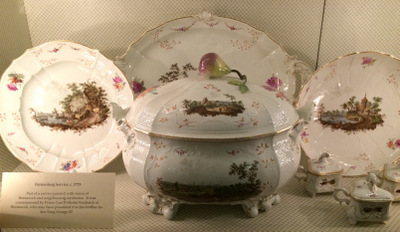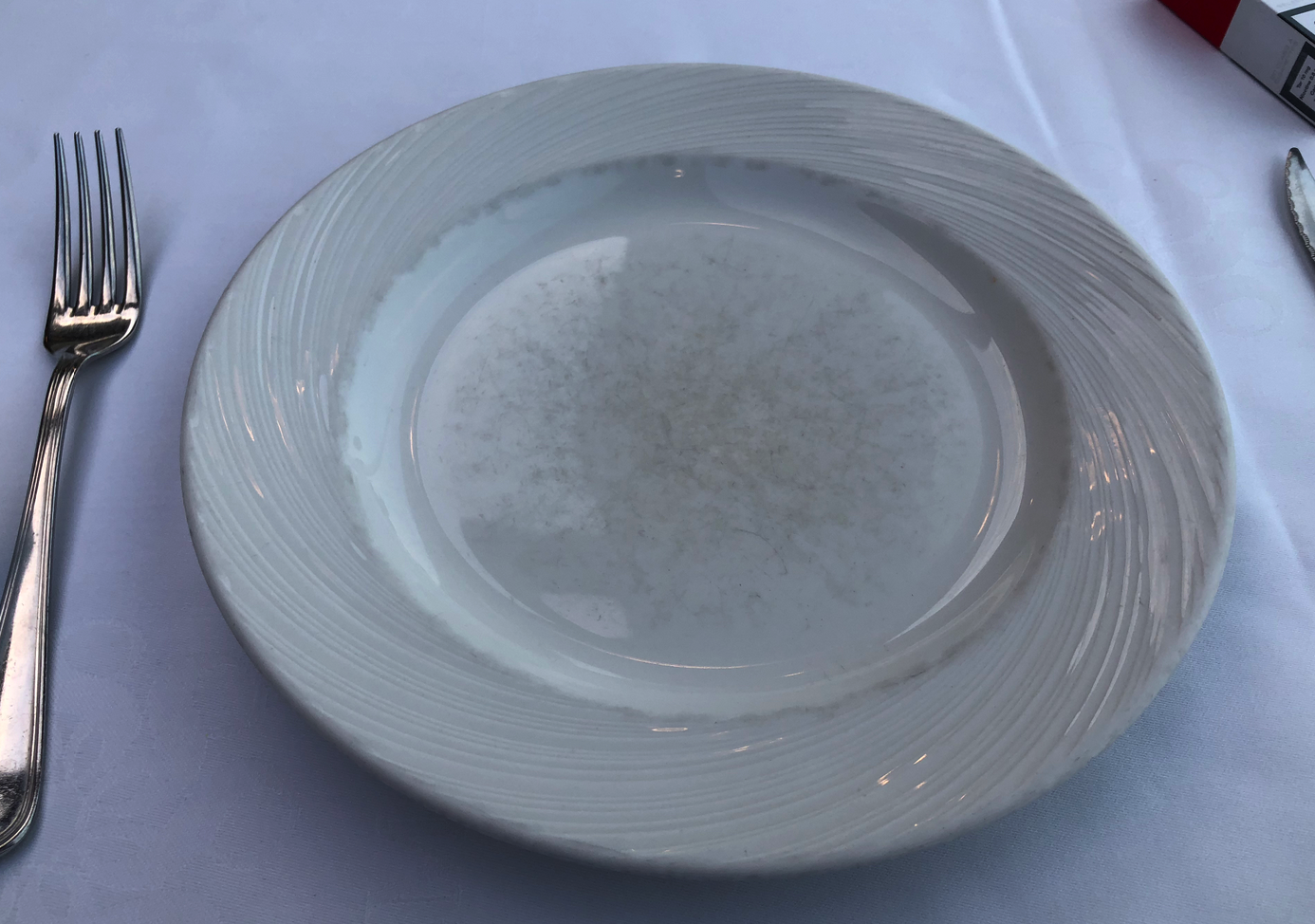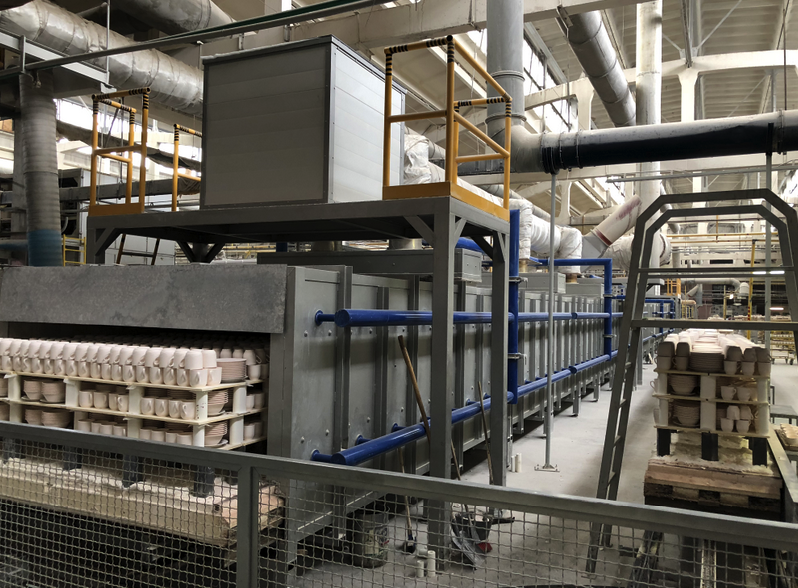Sustainability
Sustainability - a term we all still have to learn
Since 2019, product claims about "sustainability" - "climate neutrality" and "environmental compatibility" - have proliferated in the advertising claims of many manufacturers. Enlightened consumers are now often labelling such product features as "greenwashing" and are justifiably critical of these claims. It will probably be decades before we - the civilised population - learn that life outside indigenous ways of life can never be climate-neutral or environmentally friendly. It must be the goal of all of us to reduce the environmental impact of human activity - it cannot be abolished. A plate or a cup made of porcelain cannot be produced in a climate-neutral way - never! But the extreme longevity of this material, which can be used for generations without wear and tear or fatigue, certainly gives porcelain a higher claim to sustainability than all other products that are used in a similar way, such as plastic, melamine, bamboo, stainless steel, ceramic and others.
Porcelain & sustainability
Honestly? Porcelain is not environmentally friendly! This product requires a lot of energy and uses high-quality raw materials.
Are there alternatives to porcelain? And "how good" are they? For around two years, a wave swept through our society and everyone cheered reusable bamboo cups. In hindsight, a disaster for people and nature. Melamine and plastic crockery - also only after several years of realisation - are in fact no substitute. Whatever has tried to replace porcelain in the last hundred years has not succeeded. If you set the longevity of porcelain against its energy consumption, the expenditure of resources appears in a completely different light. Genuine hard porcelain has a virtually unlimited shelf life. The intended use determines whether porcelain has a lifespan of 1, 10 or 100 years. If the museum pieces from 2,400 BC (Vietnam) or 1720 - 1790 AD (Meissen or Fürstenberg) were not so valuable, you could still eat or drink from them today. Just like on the first day.

Resources for truly sustainable products
Genuine feldspar porcelain is only comparable to glass in terms of weathering-free, low-corrosion, light- and temperature-resistant material stability. However, glass needs firing temperatures of 1,800 °C and we "only" need 1,320 °C. However, more stable tempered glass (potassium silicate glass) is subject to considerably more corrosion than porcelain. In terms of hygiene and antibacterial properties, porcelain is also almost unrivalled - and last but not least: it is also beautiful!
However, we dare to doubt whether the advancing mechanisation with its incredible machines and equipment is superior to traditional porcelain production from an environmental point of view. In Germany, there are porcelain factories that advertise with an "environmental seal": energy-saving kilns - unbelievable! Next to it is a "sprayer" that releases around 133 million litres of hot water vapour into the environment for 12 tonnes of raw porcelain mass. Porcelain firing with environmentally friendly natural gas - also unbelievable. Who is naive enough to believe that the consumption of fossil fuels is environmentally friendly?

In most cases, such "environmentally friendly measures" lead to a reduction in the firing temperature or a decrease in the purity of the raw materials. Hallelujah. Although the porcelain still looks the same, it is much softer, but has a lower density or less stability. The lifespan of such crockery - including so-called porcelain imitations - decreases significantly and the environmental footprint is considerably reduced. Plates and platters become unsightly and unusable after less than 6 months.

Environment and Holst porcelain
We make sure that the manufacture of our products is as environmentally friendly as possible. Wherever we can meet the sometimes exaggerated quality demands of our customers, we favour smaller productions that do not require huge machinery and robots. We have completely eliminated porcelain that is still fired in coal-fired kilns from our collection. We attach great importance to
- Filter systems in the flue gas duct
- Waste heat utilisation for drying processes
- Environmentally friendly disposal of all production waste
- Avoidance of packaging waste
- A clean production environment.
In the end, our commitment will not save the world. Perhaps fully automated mass production is more ecological after all. But as long as you need 10 machines to produce a new machine, which in turn needs three machines to run, we have our doubts.
Legislators still have a lot to learn!
Therefore an example:
One of our customers, a motorway service area, wanted to offer its guests reusable porcelain "Coffee to Go" cups from Holst Porzellan. The authority responsible for checking hygiene regulations in North Rhine-Westphalia refused to allow the service station operator to use drinking vessels brought into the service station.
What good is it if manufacturers such as Holst Porzellan and businesses such as this service station are in favour of a reusable system and it ultimately fails again due to questionable laws? Nevertheless, we will not allow ourselves to be stopped and will do everything we can to improve our sustainable footprint on this planet.
Product knowledge - A request to our readers!
Since 1998, we have been cultivating our product knowledge out of a passion for porcelain and the endeavour to share our knowledge about this beautiful and exciting material. In more than 20 years, our information pages have grown into a free online encyclopaedia of porcelain knowledge and now serve as a helpful reference work for dealers, end customers, vocational schools and even competitors. In times of increasingly important reviews on the Internet, we therefore ask you to write us a small review on Google. This will help us to address topics that have not yet been dealt with and to constantly revise this knowledge database. Thank you very much.

